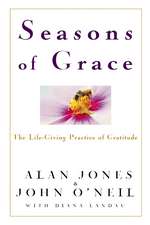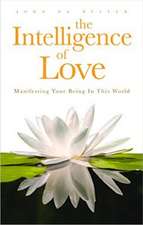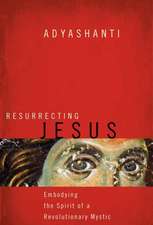Capitalizing Religion: Ideology and the Opiate of the Bourgeoisie
Autor Craig Martinen Limba Engleză Paperback – 24 sep 2014
| Toate formatele și edițiile | Preț | Express |
|---|---|---|
| Paperback (1) | 216.62 lei 3-5 săpt. | |
| Bloomsbury Publishing – 24 sep 2014 | 216.62 lei 3-5 săpt. | |
| Hardback (1) | 713.72 lei 6-8 săpt. | |
| Bloomsbury Publishing – 24 sep 2014 | 713.72 lei 6-8 săpt. |
Preț: 216.62 lei
Preț vechi: 244.65 lei
-11% Nou
Puncte Express: 325
Preț estimativ în valută:
41.45€ • 43.03$ • 34.57£
41.45€ • 43.03$ • 34.57£
Carte disponibilă
Livrare economică 01-15 martie
Preluare comenzi: 021 569.72.76
Specificații
ISBN-13: 9781472527448
ISBN-10: 1472527445
Pagini: 192
Dimensiuni: 156 x 234 x 10 mm
Greutate: 0.3 kg
Editura: Bloomsbury Publishing
Colecția Bloomsbury Academic
Locul publicării:London, United Kingdom
ISBN-10: 1472527445
Pagini: 192
Dimensiuni: 156 x 234 x 10 mm
Greutate: 0.3 kg
Editura: Bloomsbury Publishing
Colecția Bloomsbury Academic
Locul publicării:London, United Kingdom
Caracteristici
Fills gap for an up-to-date critical evaluation of 'spirituality' and 'individual religion'
Notă biografică
Craig Martin is Assistant Professor of Religious Studies, St. Thomas Aquinas College, USA.
Cuprins
IntroductionPart 1: Religion, Capitalism,and Social Theory1. 'Individuality is zero'2. Theorizing 'Individual Religion'3. Our 'Religion' of the Status QuoPart 2: The Opiate of the Bourgeoisie4. Quietism: The Empire's Gospel5. Consumerism: The Fashionable Hijab6. Productivity: The New Protestant Work Ethic7. Individualism: A Capital Theodicy Afterword: Things at the Disposal of SocietyBibliographyIndex
Recenzii
It is fair to say that Martin's work is a success, bringing a wonderful melange of personal, philosophical, and sociological wisdom to bear on the very particular form of wisdom which is popular spiritually ... Perceptive and original ... Martin provides us with an excellent text that is both engaging and scholarly.
It is nearly impossible to find a study of religion in the West written in the last 40 years that has not made reference to individualism. Craig Martin asks his scholarly colleagues to stop believing the ideological fallacy of ascendant individualism in modern religious experience. Instead, he turns our attentions to the embedded capitalist agenda of religious action and advocacy in the contemporary moment. After reading this book, you will never again feel wholly comfortable talking about spirituality without also thinking about consumerism and its profound hold on our fictions, our fantasies, our ideologies, and our religions.
Martin's work brilliantly exposes the intellectual limitations of scholarship that claims neutrality but fails to interrogate the social dimensions of modern individualism and calls for an engaged approach to academic writing that reveals its own sympathies in relation to dominant forms of power. An essential primer in unmasking the politics of classification and the influence of modern capitalist ideas upon scholarship in the study of religion.
In this timely intervention, Martin shows how the field of religious studies has failed to theorize 'individualism', and goes on to provide an account of the social functions served by supposedly individualistic expressions of religion. Martin focuses on religion where it actually happens: not in the pulpit or the rarefied works of theologians, but in the day-to-day and popular manifestations of religious ideology that appear in novels and self-help books. In the process, his clear prose makes sophisticated theorists and complicated ideas accessible to a general readership.
The book provides a much needed corrective to the discipline of Religious Studies' failure to properly theorize modern individualism.
Interviewed in
It is nearly impossible to find a study of religion in the West written in the last 40 years that has not made reference to individualism. Craig Martin asks his scholarly colleagues to stop believing the ideological fallacy of ascendant individualism in modern religious experience. Instead, he turns our attentions to the embedded capitalist agenda of religious action and advocacy in the contemporary moment. After reading this book, you will never again feel wholly comfortable talking about spirituality without also thinking about consumerism and its profound hold on our fictions, our fantasies, our ideologies, and our religions.
Martin's work brilliantly exposes the intellectual limitations of scholarship that claims neutrality but fails to interrogate the social dimensions of modern individualism and calls for an engaged approach to academic writing that reveals its own sympathies in relation to dominant forms of power. An essential primer in unmasking the politics of classification and the influence of modern capitalist ideas upon scholarship in the study of religion.
In this timely intervention, Martin shows how the field of religious studies has failed to theorize 'individualism', and goes on to provide an account of the social functions served by supposedly individualistic expressions of religion. Martin focuses on religion where it actually happens: not in the pulpit or the rarefied works of theologians, but in the day-to-day and popular manifestations of religious ideology that appear in novels and self-help books. In the process, his clear prose makes sophisticated theorists and complicated ideas accessible to a general readership.
The book provides a much needed corrective to the discipline of Religious Studies' failure to properly theorize modern individualism.
Interviewed in













